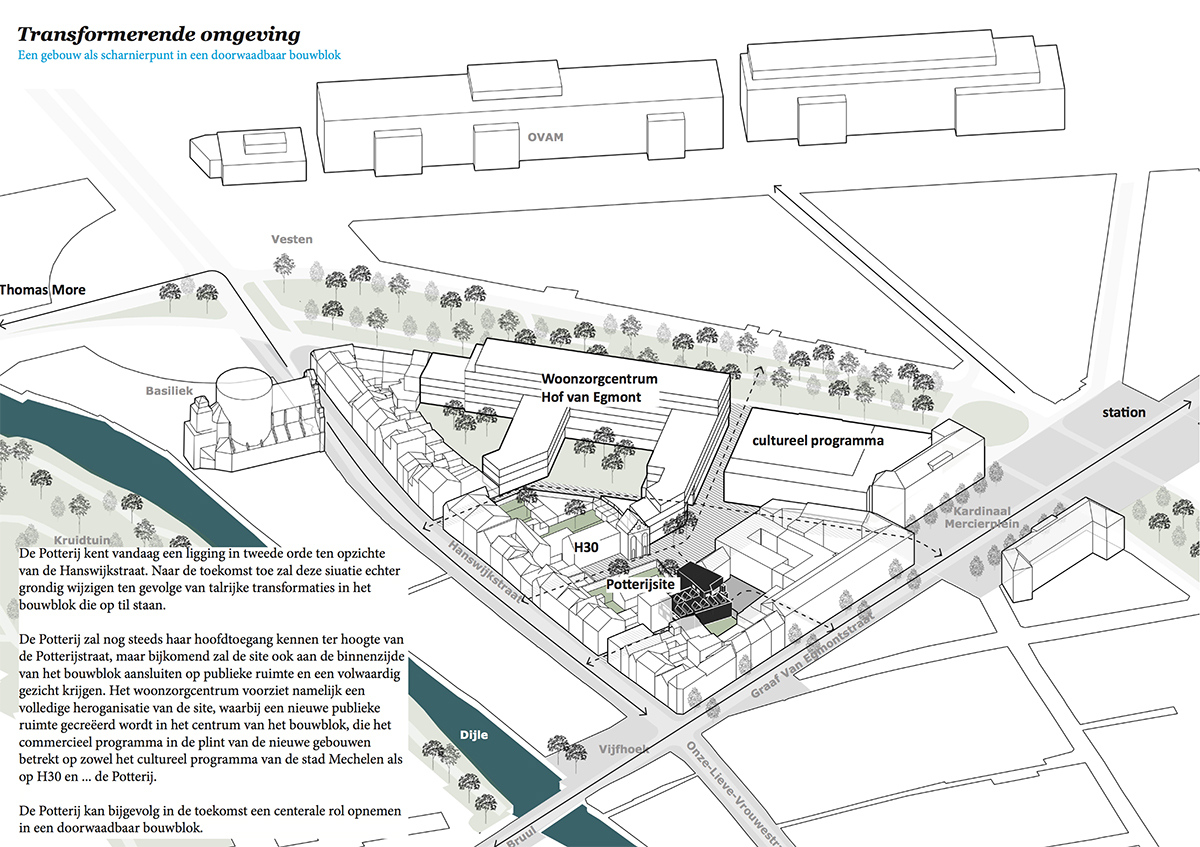Topics
We organise our actions in six thematic & strategic agendas:
Strategic Agendas:
Bio-economy
Circular Construction
Chemicals/Plastics
Manufacturing Industry
Food Chain
Water Cycles
Seven leverages provide additional support:
Leverage effects:
Lever Policy Instruments
Lever Circular Procurement
Lever Communication
Lever Innovation & Entrepreneurship
Lever Financing
Lever Jobs & Skills
Lever Research
What, why and how?
Why are we pursuing a circular economy?
Future visions 2050
How do we see our circular future?
About our management
Who steers what at Flanders Circular?
Labo Leegstand
Modular construction kit for temporary filling of empty premises
Bringing vacant buildings (temporarily) back into circulation provides ecological, economic and social added value. In practice, however, this sustainable approach to space (re)use does not always equate to sustainable material (re)use. After all, building systems are not designed for temporary use. The core problem is that, precisely because of the temporary nature of the infill, low-grade linear materials are often chosen.
Through the project Labo Leegstand BUUR cvba wants to demonstrate that it is possible to make an empty building temporarily usable in a circular manner, according to the current (insulation) standards, and that this filling can also be dismantled and reused after a few years.
We are conducting this research on the basis of a concrete practical case in De Potterij, a strategically located contaminated site in the Mechelen inner city that is being set up for temporary use. De Potterij is a demo area where producers can test products and exchange experiences with a view to change-oriented construction, but also a showcase for spreading circular ideas.
Our ultimate ambition is to use the results of the research project and the practical case to develop a project that is as scalable as possible: a broadly applicable, sustainable modular construction package for the temporary filling of empty premises.

BUUR cvba
Partners Miss Miyagi bvba
Sectors
Themes
Organisations
Website
MOST IMPORTANT
RESULTS
- We succeeded in putting together a circular building package tailored to the Potterij. This yielded a number of ecological benefits: energy consumption fell sharply and we reduced waste streams thanks to the use of circular building materials.
- Our modular box in De Potterij contains more than 25 circular building materials from 20 producers. This resulted in fine collaborations: building partners got to know other products, came together and coordinated execution and assembly.
- A lot of work was done in cooperation with custom-made companies. For example, a local custom-made company in Limburg produced the Knoopwerk frame, De Vlaspit took care of the insulation of crushed wine corks, Pastel helped insulate the walls ...
- We contribute to the dissemination of circular ideas, not only by setting up the vacant Labo, but also thanks to the efforts of Deelbaar Mechelen, a non-profit organisation that puts the Mechelen sharing economy on the map, together with the klusbib, digibibib and the zadenbib.
MOST IMPORTANT
LESSONS LEARNED
- We did not achieve our initial ambition of designing a general, widely applicable modular construction kit. Reality taught us that this would require a great deal of time and study. We did, however, use the available time to realise a concrete practical case in the Potterij.
- The principle of temporary use of vacant premises is a very sustainable and circular one, but we realise that the realisation goes beyond mere physical interventions to bring the premises back into use.
- Standards and laws are not geared to temporary use. Environmental permits, EPB legislation, fire regulations, etc. require (too) much research, time and energy for only a temporary use. Exemptions that take the temporary nature into account would be of great added value.
- We are still looking for a good circular application for the techniques. Techniques as-a-service is a nice innovation, but not (yet) designed for temporary use. Also, the payback time of ecological systems (heat pump, solar panels) is often longer than the duration of the temporary filling.
WHAT DOES
THE FUTURE HOLD?
The Potterij will be a building open to the public, so that it will function as a showcase for circular construction for at least two years. A physical tag attached to the box and the Fugzia website will make it easy for interested parties to find information about circular construction and the materials and building kits used.
If possible, we would also like to set up a workshop or small event space in the Potterij according to the principles of change-oriented building. This can then be used by all Labo Leegstand project partners and the associations in Mechelen.
The City of Mechelen is also currently working on a campaign about circular building and wants to use the project of Labo Leegstand as one of the realised examples in their communication.
The temporary filling-in of the Potterij by Mechelen's sharing economy (Deelbaar Mechelen, Coflab, Ko-lab and Nootenboom) is actually a pre-programme for its eventual filling-in: the Impact Factory, a home base for a new kind of sustainable entrepreneurship and a base for the circular economy in and around Mechelen.
















